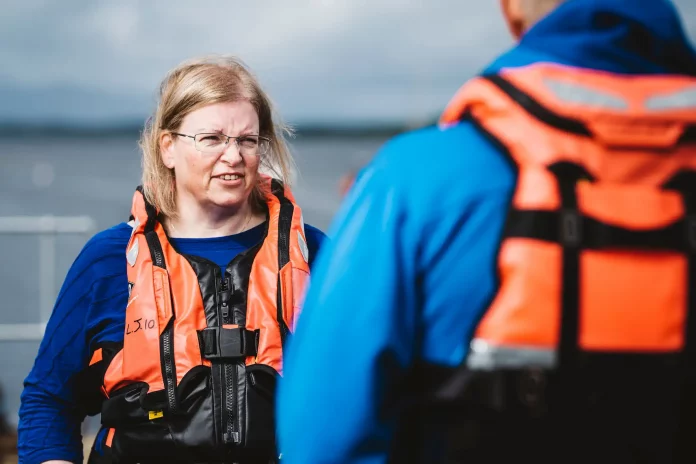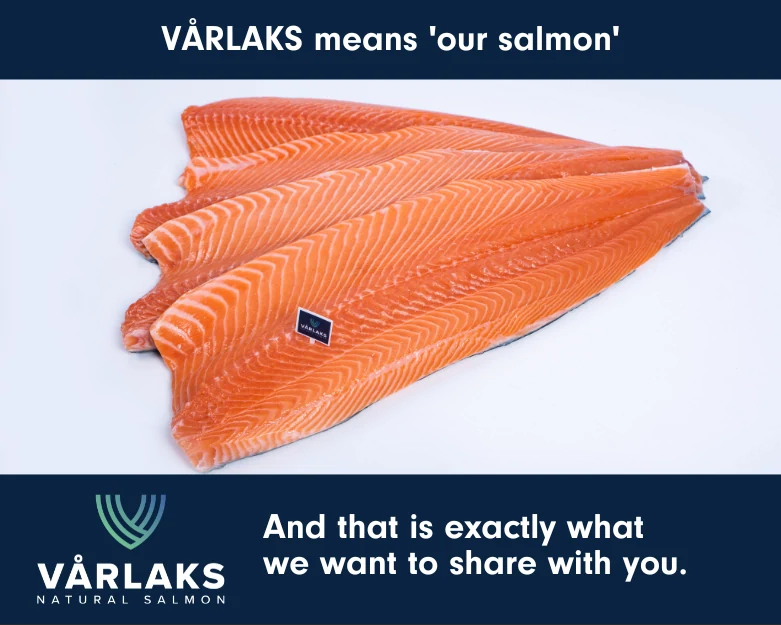The company said it hosted Burgess at a Shetland farm site in 2021, where it was able to address similar “misconceptions” about issues like medicine use, sea lice management and fish waste. It added that it has had no contact with Burgess since the visit despite the offer for further dialogue.
Speaking to Shetland News, Scottish Sea Farms’ head of sustainability and development Anne Anderson said in response to Burgess’ views on Fish Holm: “It’s more than a little alarming that an elected official, from a party whose slogan is ‘For people, for planet’, can remain so resolutely ill-informed about a sector that has one of the lowest carbon footprints in farming, has minimal impact on the environment and is the second biggest employer in the Shetland Islands.
“We would urge Ms. Burgess to bring herself up to speed with the previous modelling regime she refers to, its failings, and the new, improved regime introduced – all of which is publicly available – and we would be happy to host her out on farm, as we have done before, to address these latest claims.”
Old data
The company asserts that Burgess based her comments on outdated data and regulatory standards. According to Scottish Sea Farms, under the updated regulatory framework established in 2018/19, Fish Holm is capable of sustaining considerably more than the 6,000-ton consent being sought.
The company also addressed Burgess’ comparison of the waste produced by 6,000 tons of farmed salmon to that of a town ten times the size of Lerwick. They argue that such a comparison is flawed, emphasizing the significant difference between organic fish waste and human excrement. They point out that the nature of fish waste, especially considering the controlled diet of the fish, is vastly different from what is output from urban wastewater treatment systems.
The company further highlighted the high-energy location of Fish Holm, suggesting that the strong currents would naturally disperse the fish waste, preventing it from settling on the seabed. This aspect of the site’s geography, they argue, plays a key role in mitigating potential environmental impacts.
Maximising fish health
Scottish Sea Farms has highlighted that their strategy of consolidating several farm sites into a smaller number, such as the proposed Fish Holm farm, is aimed at enhancing fish health and reducing medicine use. Over the past five years, the company has successfully reduced its annual medicine use from 30.4kg to 12.8kg through alternative fish health treatments and innovative practices.
Concerning employment impact, Scottish Sea Farms refutes claims that the consolidation at Fish Holm will lead to job losses. Instead, they assure that all current jobs will be safeguarded, with staff moving to the new site, and project an increase in both direct and indirect employment in the future.
In response Burgess told Shetland News: “Scottish Greens will always stand up for people, for planet. That’s why the Bute House Agreement states that aquaculture ‘must operate within environmental limits and with social licence and ensure there is a thriving marine ecosystem for future generations’.










